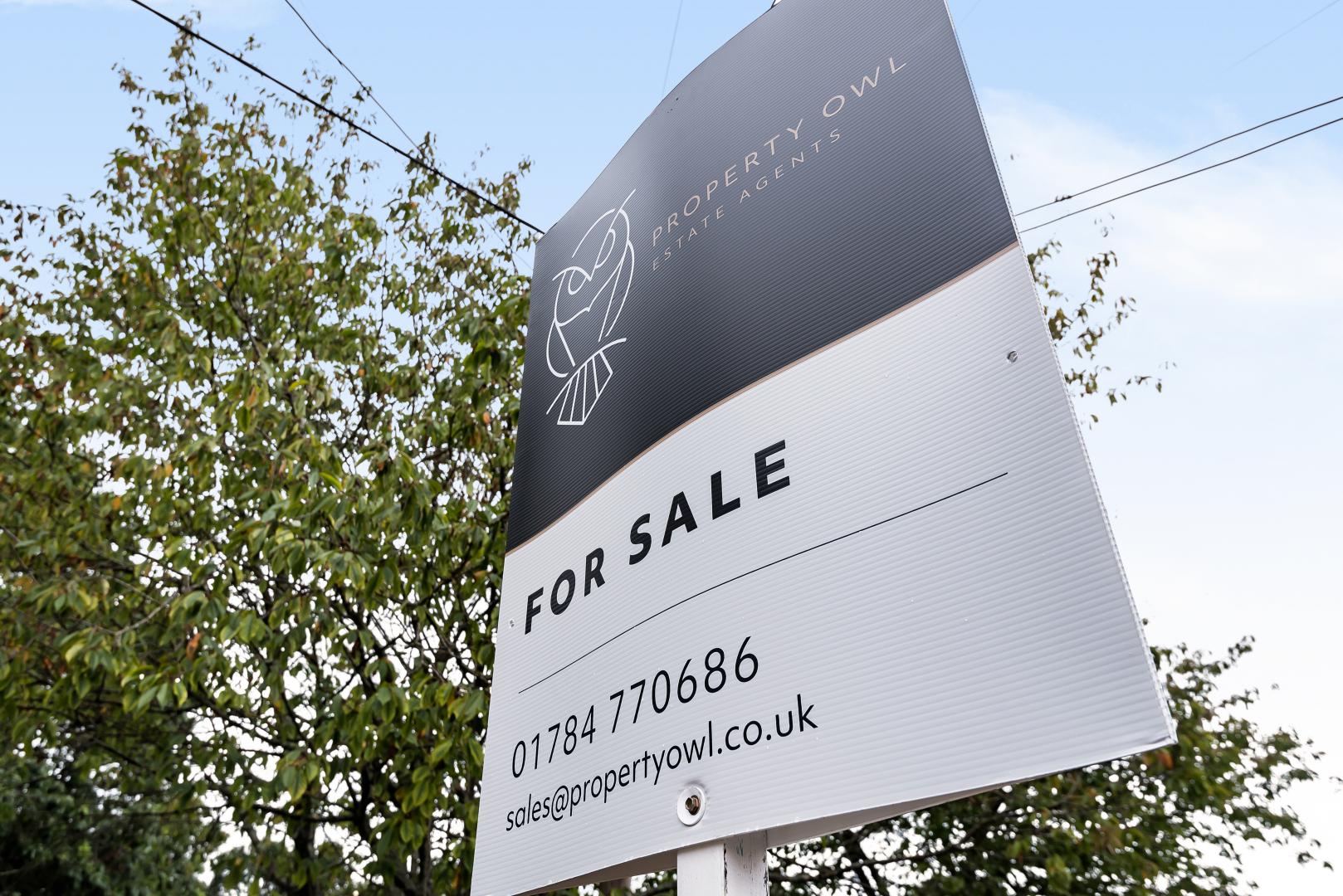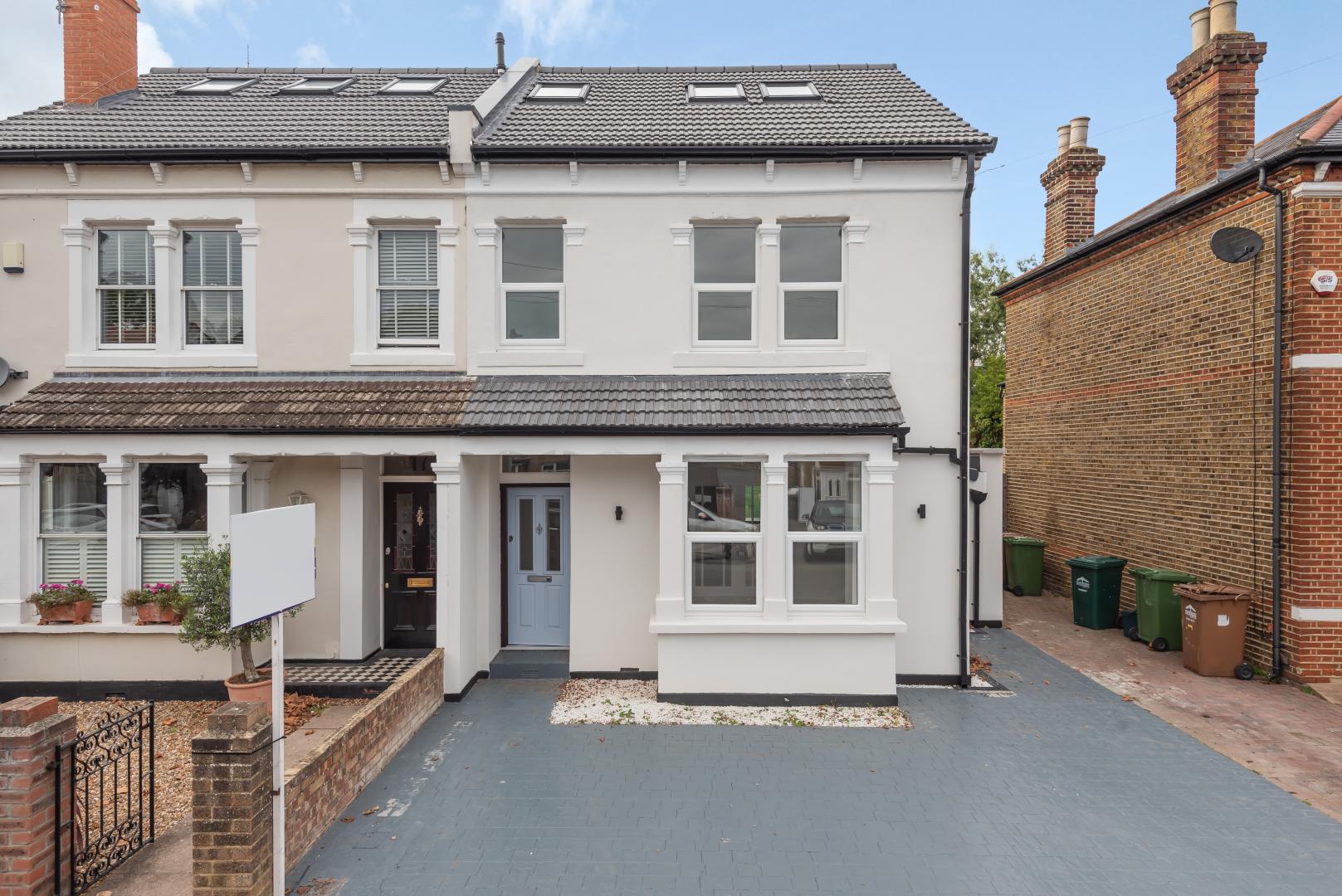If you’ve ever been involved in a property transaction within the last 18 months, then the chances are you’ve probably heard of gazumping or perhaps even experienced it first hand. For buyers looking actively in Staines-Upon-Thames it’s one of the worst things that can happen, particularly if you’ve found your dream home. Property in the area is currently in high demand, with limited choice available buyers are reconsidering properties that they may have discounted initially and offering with a view of trying to break the current deal to sway in their favour.
What is Gazumping?
Gazumping is when a seller verbally accepts an offer for their property, but then accepts a higher offer from someone else before the purchase has been completed.
So, if you see a listing on a property website which states ‘Sold STC’, the property is actually still available for purchase and this is the point where the gazump could occur.
Is Gazumping Legal?
Although it’s morally ambiguous, gazumping is entirely legal. An offer to purchase is not legally binding until contracts are exchanged, meaning that either the buyer or seller can pull out of the deal at any point, or attempt to renegotiate the price prior to exchange.
The further along the process that a buyer gets, the more painful and costly it will be, particularly once searches and surveys have been carried out.
Why Does Gazumping Happen?
There are a number of reasons why gazumping occurs, with the most common reason being that the seller simply receives a higher offer from another buyer.
However, there can be several other contributing factors too, including the seller’s willingness to allow a gazump to happen in the first place. Some sellers may refuse any higher offers point blank once they’ve accepted an offer verbally.
On the other hand, if they’re looking to make a quick sale and the buyer is dragging the process out then this can lead to a gazump.
For example, the buyer may be waiting for a mortgage offer, requesting additional surveys, or attempting to negotiate a lower price based on minor issues that have been found in the survey. In this instance, if a cash buyer were to come along with the full asking price, it’s easy to see why a seller may be tempted to accept the new offer.
Having said that, the closer it gets to exchanging contracts, then usually the less likely a gazump will occur, especially if the seller is looking to move quickly or dependant on a sale to secure a potential purchase.
If a seller accepts an offer and then receives a higher one the following day, there’s a good chance they’ll accept it, and the initial buyer will have to increase their offer if they want to continue to buy the property, although this would be disappointing for them, at least they won’t have had time to get the ball rolling in terms of conveyancing and surveys at this point and unlikely to have lost any expense.
On the flip side, if all of the surveys are complete, mortgages are in place, the contracts are ready to be exchanged and a new buyer comes in at the last minute, it’s unlikely that the seller would entertain the offer. Unless it’s far too good to turn down, which is possible but unlikely.
How Can You Avoid Being Gazumped?
Although gazumping can happen with any buyer on any property, there are five things buyers can do to give themselves the best chance of avoiding it.
1. Be Prepared
Before making an offer on a property, ensure that you have a mortgage in principle at least, and ideally a solicitor. Most estate agents will recommend a solicitor, but it’s always best to have your own one lined up in advance.
2. Act Quickly
Gazumping is more likely to occur if the buying process is being dragged out and delayed. Contact your solicitor for regular updates to find out where they’re at. If there are delays, then it’s better that they’re down to the seller’s solicitor rather than yours. And arrange for a survey to be completed as early as possible so that any issues can be picked up quickly.
3. Ask for The Property to Be Taken Off the Market
Sellers aren’t obliged to do this, but if they’ve accepted your offer and trust you to be a serious buyer there’s a good chance they’ll be happy to agree to it.
4. Get Insurance
Home Buyers’ Protection Insurance will cover some of your losses in the event of being gazumped. You won’t receive all of your conveyancing and survey fees back, but you’ll receive at least some. It won’t make up for the disappointment of losing the property but by being prepared you can save some of the financial strain.
5. Get a Lock Out Agreement
Your solicitor will be able to draw this up for you, but there’ll be an extra cost involved and the seller may not be willing to agree to it.
The lock out agreement gives you a fixed period of time in which you have exclusive rights to buy the property, meaning that if the seller accepts an offer from someone else, they’d have to pay you a penalty fee. Be mindful an lock out agreement can sometimes in itself cause huge delays, by the time you come to agreeable terms you could have already been well on your way into the purchase so on a residential transaction you will rarely come across it but when purchasing for development these are normally the first thing that is put in place.
Our best advice for any prospective buyer looking to buy within the local area is try and stay contact in with your agent as much as possible, update them regularly or as frequently as you can with what you have done, this will demonstrate your intent and commitment and if you do ever come under threat the agent should be more supportive of their client to stay with you rather than change to any new buyer, remember the agent won't make the decision but should certainly bare some influence when advising their client.
Property Owl Estate Agents are your local property experts for the Staines-Upon-Thames area. Call us on 01784 770686 or email sales@propertyowl.co.uk to chat with a member of our friendly and experienced team.






Share this with
Email
Facebook
Messenger
Twitter
Pinterest
LinkedIn
Copy this link